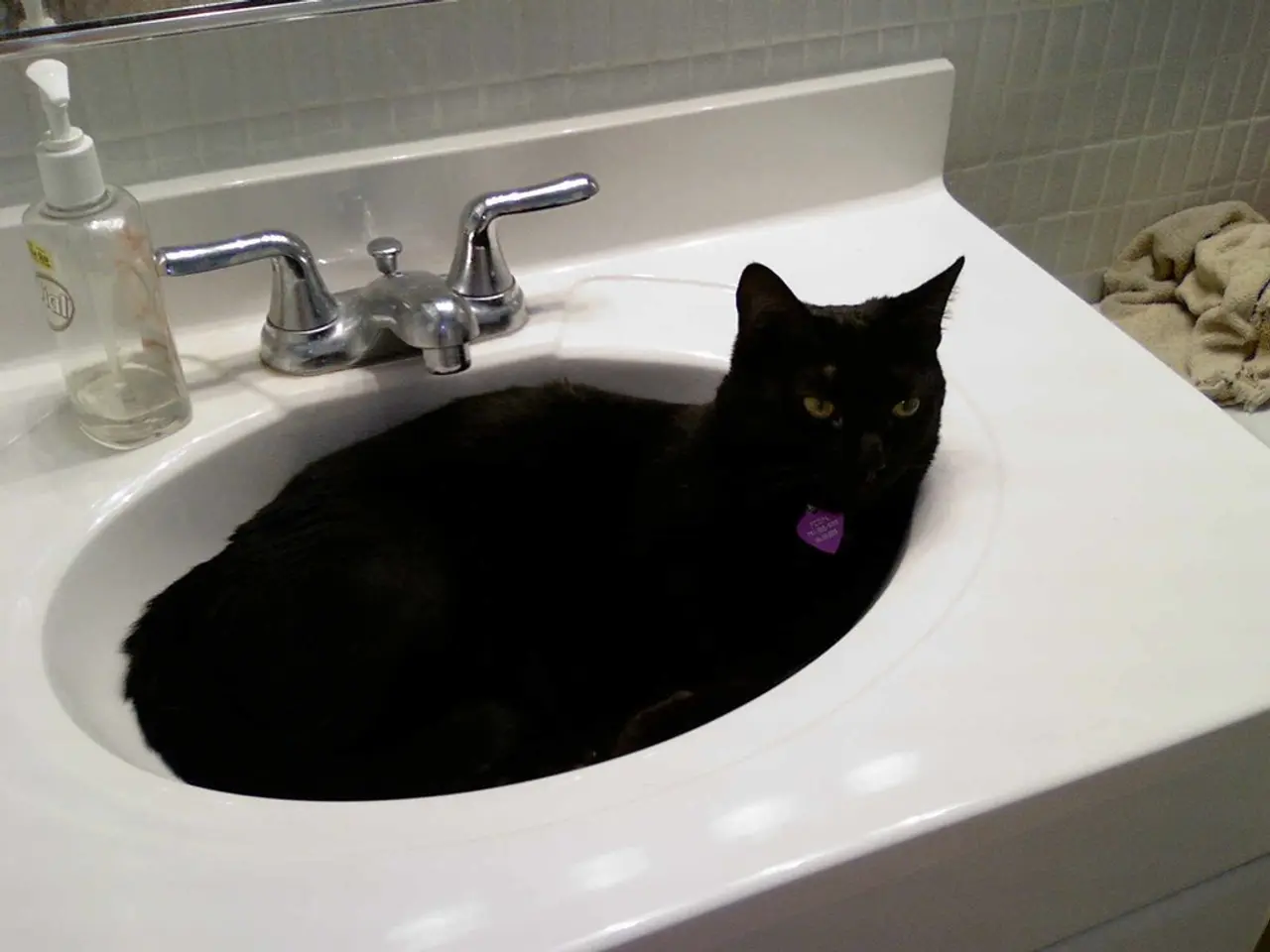Cat Sneezing: Possible Allergies Explored
Cats, known for their fastidious nature, can sometimes display unusual behaviours like persistent sneezing. This article aims to help cat owners understand the potential causes and when it's time to seek veterinary care.
Persistent sneezing in cats is often linked to upper respiratory infections (URIs), allergies, or exposure to environmental irritants. URIs, which can resemble a human cold, are the leading cause and are usually viral, with feline herpesvirus-1 and calicivirus being common culprits. Allergies to dust, pollen, mold, smoke, and household cleaning agents are also frequent contributors. Less commonly, bacterial infections or parasites may cause sneezing [1][2][4].
If your cat's sneezing persists, becomes more frequent, or is accompanied by concerning signs such as nasal discharge (especially if coloured or thick), eye discharge or redness, lethargy, loss of appetite, coughing or breathing difficulties, swelling or sores around the nose or mouth, or if the sneezing worsens over several days or does not improve with home care, it's essential to consult a vet [1][3][4]. These symptoms may indicate a more serious infection or underlying condition requiring professional diagnosis and treatment.
Moreover, if you suspect environmental allergens or irritants (including dusty cat litter, smoke from fireplaces, or harsh chemicals) are causing sneezing, try to eliminate these triggers at home. However, if symptoms continue or worsen, it's advisable to consult a vet [3].
Dental disease in cats can also cause sneezing, often accompanied by bad breath or trouble eating. If you suspect dental issues, it's essential to have your cat examined by a vet [5].
In summary, persistent sneezing in cats is usually due to upper respiratory infections or allergies, and veterinary care is warranted when sneezing is frequent, prolonged, or associated with other signs of illness [1][2][3][4]. By being vigilant and seeking prompt veterinary care when necessary, you can help ensure your cat's health and wellbeing.
[1] Feline Sneezing: Causes, Diagnosis, and Treatment. (2021). Veterinary Partner. Retrieved from https://vcahospitals.com/know-your-pet/feline-sneezing-causes-diagnosis-and-treatment
[2] Sneezing in Cats. (n.d.). PetMD. Retrieved from https://www.petmd.com/cat/conditions/respiratory/c_cat_rhinitis
[3] Sneezing in Cats. (2019). Hill's Pet Nutrition. Retrieved from https://www.hillspet.com/cat-care/symptoms/sneezing-in-cats
[4] Feline Sneezing. (n.d.). Cornell Feline Health Center. Retrieved from https://www.vet.cornell.edu/departments-centers-and-institutes/cornell-feline-health-center/health-information/feline-health-topics/feline-sneezing
[5] Dental Disease in Cats. (2021). PetMD. Retrieved from https://www.petmd.com/cat/conditions/dental/c_cat_periodontal_disease
By adopting a cleaner lifestyle and ensuring a smoke-free environment, cat owners can help minimize allergens and irritants that might trigger their cat's persistent sneezing. Incorporating health-and-wellness habits for your pets, such as regular vet check-ups and dental care, can also aid in early detection of potential issues. By doing so, pet owners contribute positively to their cats' overall health, enhancing their lifestyle and promoting a harmonious bond.




